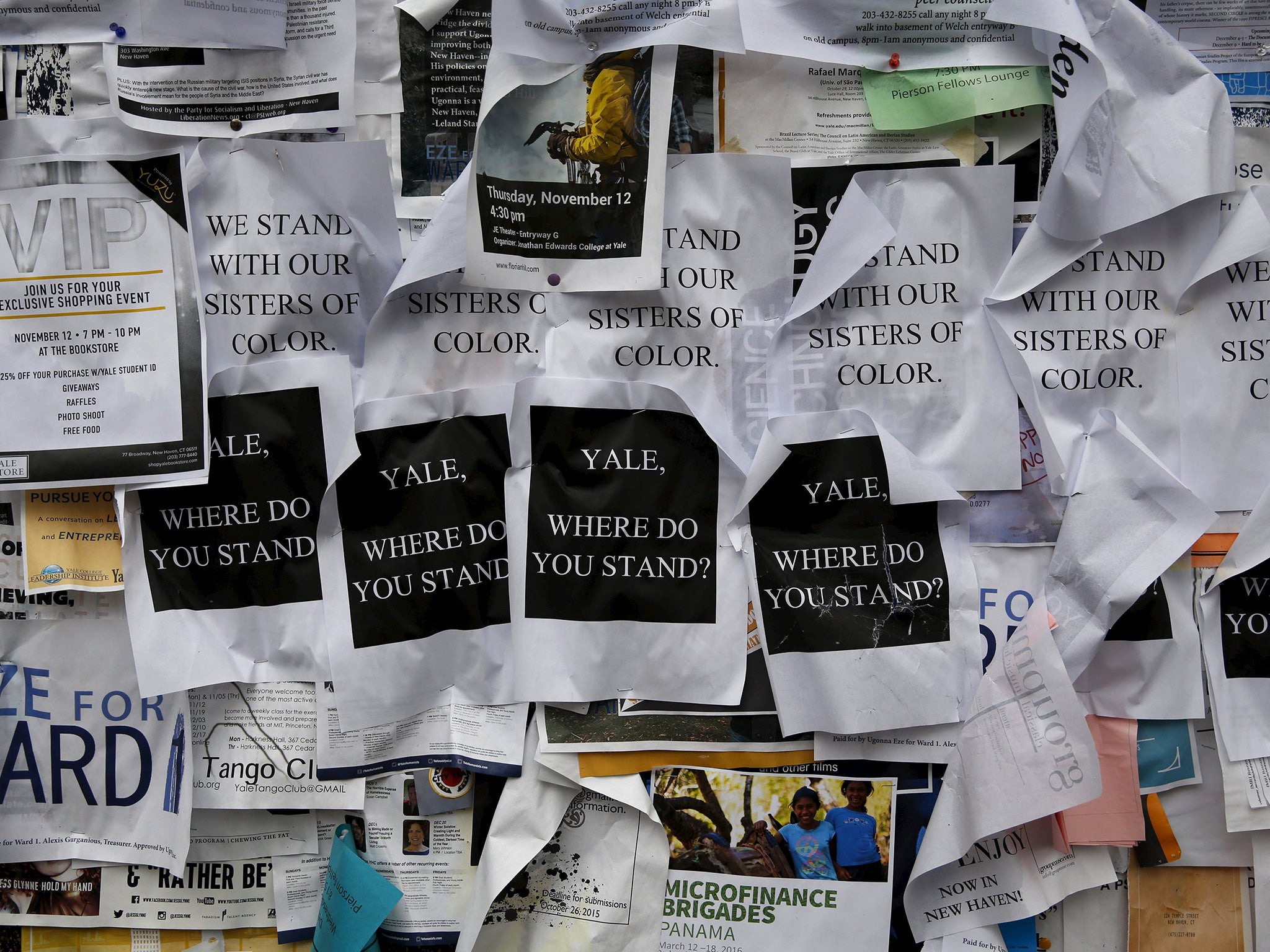The culture of extreme political correctness at universities is dangerous to freedom of speech
Universities are the cornerstone of free thought - we lose that privilege at our peril


The culture of extreme political correctness spreading across Western university campuses is not just a dangerous threat to freedom of speech - which it is, though in the hands of precocious 18-year-olds who have learned a few long words, the assault on our common values feels remarkably unthreatening – it is also bizarrely counter-productive. For two reasons, I find the trend abhorrent.
First, the creation of ‘safe spaces’ and the issuing of ‘trigger warnings’ has a sanitising effect. If universities shut out those with whom their student bodies disagree, those people and their views are not suddenly erased from society. Quite the opposite; bigotry flourishes in this kind of vacuum. What is the point of bothering to acknowledge views you find offensive exist, but then failing to stand up to them in public?
And while it might appear an act of kindness to offer a ‘trigger warning’ before discussing a sensitive subject, it actually inflicts terribly cruelty to those it seeks to protect. Like the horror film you’ve seen before, the more we warn people about what they’re about to hear, the less impact it has.
Rape and domestic violence, to take two examples of issues where ‘trigger warnings’ might be employed, are a scourge on our society. Are the victims of these injustices really such sensitive flowers that they can’t cope with talking about the world as it really is? No, they are not. Speaking out - and caring nought about who you offend in the process - is the only way to tackle it.
Second, the bizarre hyper-PC lexicon campus culture has spawned is nothing more than impenetrable jargon. Like any journalist, I believe in speaking plainly at all times. A woman who has not encountered any issues with her identity is - to me, and I expect to most of our readers - a woman, not “cis gender”. If a black woman faces discrimination because she is black and because she is a woman, it is enough to say so; talking of ‘intersectionality’ adds an unnecessary layer of confusion for anyone not up on the lingo.
Hiding behind these terms suggests those who rely upon them think they can’t win an argument without the props of academia to protect them. And it alienates the many people off campus who might be switched on to some of the big social issues discussed in universities – not least the fact that, in 2015, we still live in a patriarchal society.
So, enough. Universities are the cornerstone of free thought. We lose that privilege at our peril.


Join our commenting forum
Join thought-provoking conversations, follow other Independent readers and see their replies